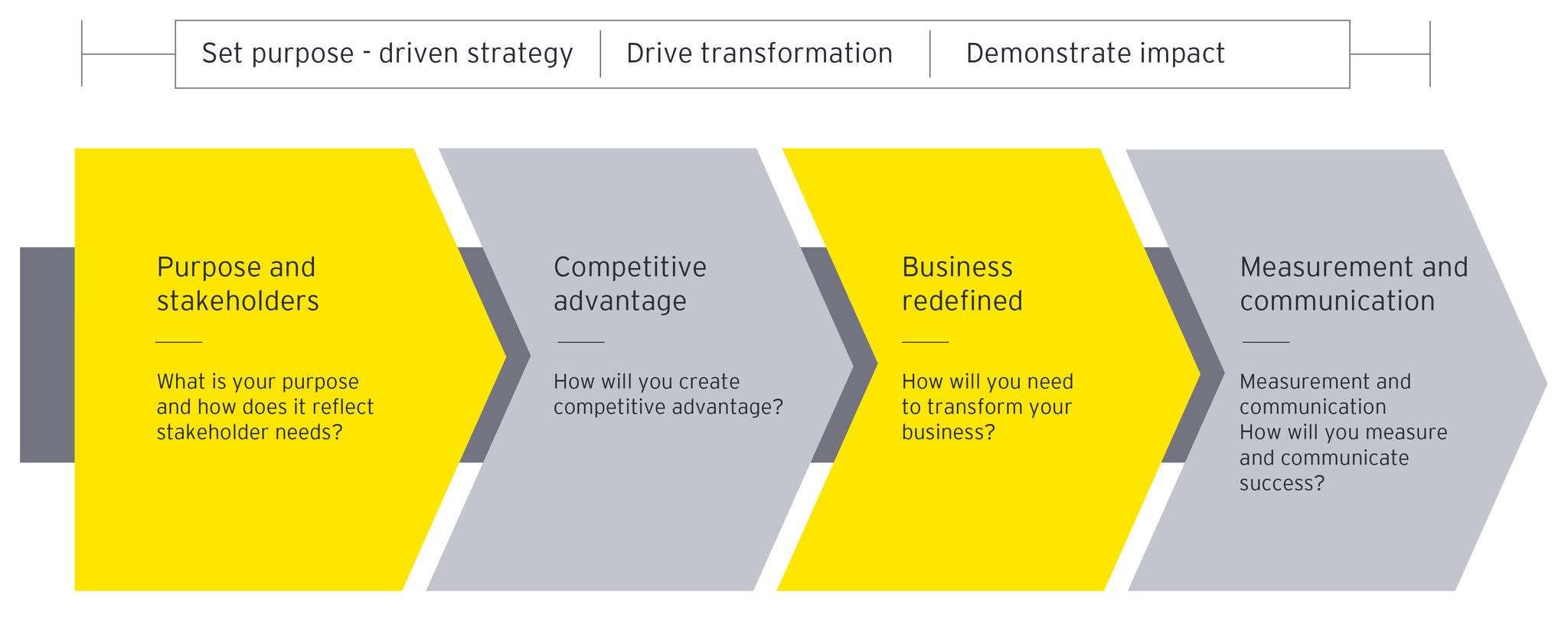EY refers to the global organization, and may refer to one or more, of the member firms of Ernst & Young Global Limited, each of which is a separate legal entity. Ernst & Young Global Limited, a UK company limited by guarantee, does not provide services to clients.
Long-term value creation metrics
How long-term value creation metrics can help your organization
The World Economic Forum’s International Business Council (WEF IBC) — supported by the Big Four accounting firms, including EY — has identified a universal set of metrics to help businesses better demonstrate their contributions toward sustainable, long-term value creation.
The list of 21 core and 34 expanded metrics was launched in September 2020 in the report Measuring Stakeholder Capitalism: Toward Common Metrics and Consistent Reporting of Sustainable Value Creation and provides a starting point for reporting against the most critical measures of non-financial value.
Many businesses are now adopting the WEF-IBC metrics in their mainstream annual reporting. And investors are increasingly focusing on the connection between sustainability and corporate strategy. As such, the new level of transparency demanded by the metrics may necessitate a review of existing disclosures and may also require a fresh look at how well your business is positioned to drive long-term value across stakeholders.
Market recognition and leadership will accrue to those companies that successfully put sustainability and long-term value creation at the heart of their corporate strategy and use this to guide investment in areas that drive competitive advantage.
Driving long-term value through purpose
For companies to genuinely generate long-term value (and measure and communicate it), a focus on stakeholder outcomes should be deeply embedded across the organization and guided by its purpose. Addressing the needs of stakeholders should include a holistic assessment of corporate strategy, the business capabilities sought for successful execution and the ability to demonstrate impact in the market through measurement, reporting and communication through a cohesive narrative.

Developing and executing against a compelling purpose-driven strategy involves a range of business disciplines, including: competitive assessment, stakeholder mapping, purpose definition and activation, employee experience, customer value proposition, supply chain management, capital allocation decisions and leadership incentives.
Why EY people?
Building on the work with The Embankment Project for Inclusive Capitalism (EPIC), EY was at the forefront of the WEF IBC metric framework development. Our teams therefore know what to measure, why to measure it, how to measure it and how to use these key performance indicators to guide development of a purpose-driven, stakeholder-focused strategy that is right for your organization’s needs.
EY teams bring together diverse high-performing teams drawn from across our Assurance, Consulting, Strategy and Tax service lines, and built for your business to help you reposition your strategy, drive successful execution and measure progress to create and demonstrate long-term value.
EY teams can support you with:



